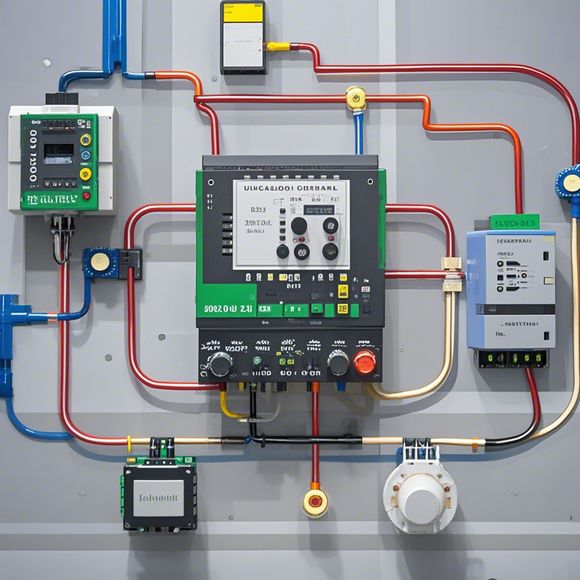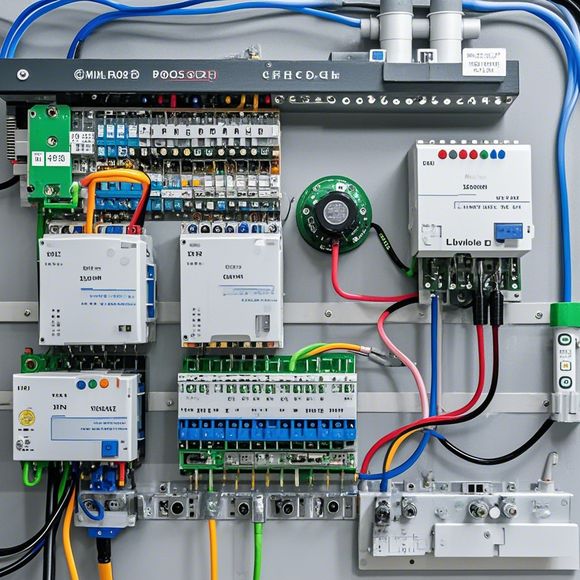The Role of the Programmable Logic Controller (PLC) in Modern Manufacturing
In the modern manufacturing world, the role of the programmable logic controller (PLC) cannot be overstated. PLCs are incredibly versatile and can be programmed to perform a wide range of tasks, from controlling machines to monitoring production data and ensuring quality control. With their ability to adapt to changing demands and environments, PLCs have become an indispensable tool for modern manufacturers. Whether it's optimizing production lines or streamlining operations, PLCs are the key to achieving maximum efficiency and productivity. So the next time you hear someone talking about the importance of automation in manufacturing, don't be surprised if they mention the role of the PLC.
In today's world, where technology plays a crucial role in almost every aspect of our lives, manufacturing has also been revolutionized with the advent of programmable logic controllers (PLCs). These intelligent machines have become an indispensable part of the modern manufacturing industry, providing a range of benefits that make them essential for any industrial operation. In this essay, we will explore the various functions and advantages of PLCs and how they contribute to enhancing the efficiency and productivity of modern manufacturing processes.
Firstly, let's understand what a PLC is and how it operates. A PLC is a computer system designed specifically for use in industrial automation environments. Unlike standard computers, PLCs are programmed to operate under specific instructions or rules, allowing them to perform specific tasks without human intervention. This feature makes PLCs incredibly useful in industries where precise control of machinery and equipment is required.
One of the primary functions of PLCs is to monitor and control the operations of industrial equipment. By integrating sensors and actuators into PLCs, manufacturers can monitor the status of machinery, detect any deviation from set parameters, and automatically adjust settings to maintain optimal performance. This feature not only enhances the efficiency of production but also reduces downtime and maintenance costs associated with faulty machinery. For example, in a manufacturing plant where multiple machines need to work simultaneously, PLCs can coordinate their operations based on predefined schedules, ensuring smooth and consistent output without manual adjustments.
Another critical function of PLCs is to provide real-time data monitoring and analysis. By collecting and analyzing data from sensors and other devices connected to the PLC network, manufacturers can gain insights into operational performance and identify areas where improvements can be made. This information can help them optimize production processes, streamline workflows, and reduce waste in the manufacturing process. Additionally, PLCs can be used to implement predictive maintenance strategies, proactively identifying potential issues before they cause significant downtime or damage to machinery.

Furthermore, PLCs offer flexibility and adaptability that make them ideal for complex manufacturing processes. With their ability to handle a wide range of inputs and outputs, PLCs can be customized to suit the specific needs of any given manufacturing environment. Whether it's controlling a single machine or coordinating the operations of a factory floor, PLCs can provide the necessary control and automation to ensure consistent and reliable performance.
In addition to these benefits, PLCs have several advantages that make them an attractive option for many manufacturers. Firstly, they offer high accuracy and precision, enabling manufacturers to produce products with high quality and consistency. Secondly, PLCs are highly reliable, with minimal failure rates and extended lifespans, ensuring that they remain cost-effective even over time. Thirdly, they are easy to program and maintain, making them a cost-effective solution for small and medium-sized businesses looking to automate their production processes. Finally, PLCs offer scalability, allowing manufacturers to easily upgrade or expand their automation systems as their production requirements change.
However, despite their numerous advantages, there are still some limitations to consider when choosing between PLCs and other automation technologies. For example, while PLCs offer great flexibility and adaptability, they may require more programming effort and expertise to effectively integrate with existing production systems. Additionally, some industries may have specific requirements or constraints that make PLCs less suitable than other automation options, such as those requiring low-level control or specialized hardware configurations.
In conclusion, programmable logic controllers (PLCs) play a crucial role in modern manufacturing by providing efficient, reliable, and flexible automation solutions. From monitoring and controlling machinery to providing real-time data analysis and predictive maintenance strategies, PLCs enable manufacturers to achieve greater levels of production efficiency, product quality, and overall profitability. As technology continues to advance, it is likely that PLCs will continue to evolve and improve, offering even more benefits to manufacturing companies worldwide.
Content expansion reading:

Content:
Hey there! If you're new to the world of industrial automation or looking to brush up on your knowledge, today we're diving into the nitty-gritty of Programmable Logic Controllers, or PLCs for short. These bad boys are the workhorses of the automation world, responsible for controlling and automating a wide range of processes in various industries.
So, what exactly is a PLC controller? Think of it like the brain of an automated system. It's a digital computer designed to perform control functions that were once handled by electromechanical relays and complex circuitry. PLCs are programmed to perform a variety of tasks, from simple on/off control to complex operations that involve data handling, logic, and communication.
One of the key benefits of PLCs is their ability to interface with a multitude of input and output devices. Inputs could be anything from switches and sensors that provide data to the PLC, while outputs might include motors, lights, or other devices that the PLC controls. This two-way communication allows PLCs to make decisions and respond to changes in the process in real-time.
PLCs are known for their robustness and reliability. They can operate in harsh industrial environments, with many models designed to withstand vibration, temperature extremes, and electrical noise. This durability makes them perfect for use in manufacturing plants, oil refineries, water treatment facilities, and any other setting where automation is crucial.

Programming a PLC is typically done using a high-level language that's easy for even non-programmers to understand. Ladder Logic is the most common language, as it resembles the circuit diagrams that electricians are familiar with. This makes it possible for technicians and engineers to program the PLC without needing a computer science degree.
Another great thing about PLCs is their scalability. As your automation needs grow, you can add more I/O modules to the PLC system. This modular design allows for easy expansion and adaptation to changing production requirements.
PLCs are also known for their safety features. They can be programmed to monitor the status of safety devices and to shut down equipment in the event of an emergency. This is particularly important in industries where safety is paramount, such as chemical processing and food manufacturing.
In summary, PLC controllers are the backbone of industrial automation. Their ability to handle complex tasks, interface with a variety of devices, and operate in harsh environments makes them indispensable in modern industry. Whether you're automating a simple conveyor belt or a sophisticated manufacturing process, PLCs are the go-to solution for reliable, efficient control.
Articles related to the knowledge points of this article:
PLC Controller Selection Guide for Foreign Trade Operations
PLC Controller for Manufacturing Automation
The cost of a PLC Controller: A Comprehensive Analysis
PLC Programming for Automation Control in the Manufacturing Industry
Plumbers Rule! The Role of PLC Controllers in the World of Waterworks